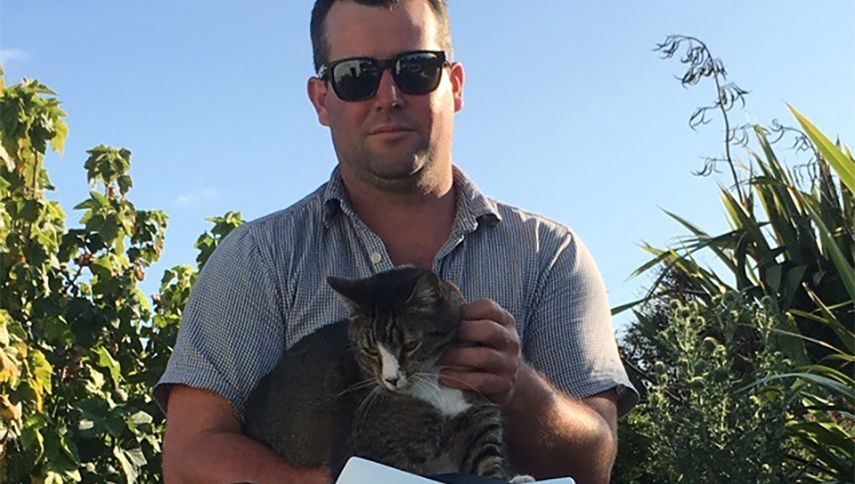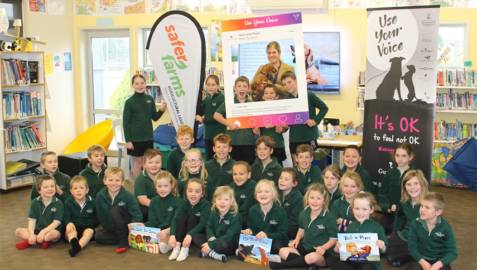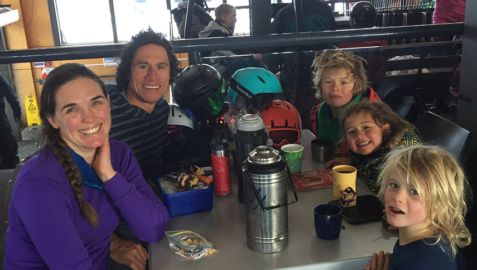
Learning to roll with it
Module Overview
After eight years farming, with three years sharemilking, Stu Davison has taken on a fresh challenge working as a dairy analyst. He shares what farming taught him about the importance of looking after yourself.
Stu’s a born and bred dairy man. He grew up on the family farm, studied agriculture at Lincoln and carved out a successful career at various share-milking operations. He’s still got skin in the game and owns a herd in the Waikato.
“I love the business side of things, I love growing grass and making things and seeing the change. Farming’s pretty cool when you get it all lining up and get a good result.”
But farming can be tough going too, admits Stu, especially if you don’t give yourself a break.
“Farming’s an inherently stressful occupation,” says Stu. “You’re dealing with biological factors like grass, cows and weather which you can’t control, and you have to just learn to roll with what’s in front of you and manage the workload. But that’s easier said than done,” he laughs. “You always seem to end up doing a bit more than you’d like.”
“I wasn’t so good at putting myself first during busy periods. Obviously you can get very tired through spring and things have to be done. I’ve always been so driven that I’m always trying to do as much as I can.”
Over time he says he has learnt from his parents to ‘ring fence’ his weekends. “The big thing for me was to get as much done in the week so you have that time to rest and recover and spend time with your family.”
He also kept in touch with mates no matter how busy he was. “I always played hockey through my whole farming career. It might have been 2-3 hours off the farm, and it was a challenge to get there and other people picked up the slack for me, but to go and spend time with people who aren’t farming and just to get away makes a huge mental difference. It just helps your mentality to know that there is a way off farm when you need it.”
“For me, even when you’re busy, that social aspect is a very important part of doing a good job. You are totally rejuvenated by catching up with mates and family. That’s a huge part of staying on top of the game.”
He says eating well during busy time is vital, but easy to neglect. “I’m no athlete but I think having the ‘right fuel in the tank’ is a key thing with dairy farming. We all know you have to feed yourself, but when you get so time poor, it’s hard to achieve and easy to get run down. The worse you eat, the worse you’re going to feel.”
Stu believes attitudes in the industry are slowly changing when it comes to the basics like sleeping, eating and time off.
“I think there’s a changing mentality in the industry around flogging yourself. People are realising they can’t run their business on three hours sleep anymore. In some parts of the country it’s changing slower than others, but there is a growing awareness that rest and sleep are really important for getting everything done to a high standard.”
“As farmers, we will often go above and beyond for our cows but then forget about ourselves. I always said to my staff my priority was to get them home safe and well so they came back next day wanting to be there. There’s no need to be silly about this stuff. We just need to make it part of the business and carry on.”
He says in the Covid-19 era labour market, the industry needs to make sure it’s an attractive proposition to potential recruits. “You can’t expect people from school to turn up on farm and work 80 hours a week for three weeks in a row before they get a weekend off. That job description’s not going to appeal to anyone.”
He’s got some simple advice for newcomers.
“I think the big one is having a support network and admitting when you need to use it. Your wife or partner or your mate down the road. Because in the middle of spring when everything’s falling apart a bit, you need to realise you just might need someone to cook you dinner or have a yak over a cuppa. That can be as easy as picking up the phone, because in my experience someone is always happy to help you. But admitting you need the help, that’s the hardest thing to learn.”


